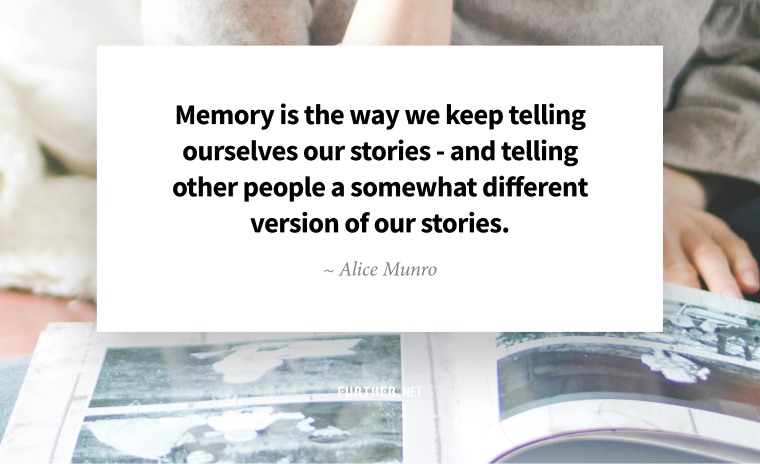
Recently, I took a two-week tour of memory lane that started at a family celebration, proceeded to a memoir-writing retreat, and ended in Eastern Europe, where I retraced my ancestors’ steps.
The trip was a great reminder that experiences make life meaningful, and memories are vital evidence of your very existence. And yet, memory is annoyingly unreliable. In middle age, you know this instinctively — half the time, you can’t remember where you put the keys or why you walked into the kitchen. And the rest of the time, you realize that the only things in your home worth saving are sentimental items like photos and letters.
If all you have in the end are your memories, then now’s the time to prioritize remembering.
Forget About It
First, a word about remembrance: it’s not just ritual — it’s also an adaptive trait. In his book Why We Remember, neuropsychologist Charan Ranganathexplains:
The various mechanisms that contribute to memory have evolved to meet the challenges of survival…Viewed through this lens, it is apparent that what we often see as the flaws of memory are also its features.
This means forgetting is an equally important part of the equation. Since the 19th century, scientists have studied the “forgetting curve,” where much of your daily experience is lost — your system’s way of making space for new information.
More recent research shows we recall things incorrectly and imaginatively interpret memories as we switch between episodic memory (experiences) and semantic memory (facts without experiential context).
All of this is to say that it’s not age that affects your memory but a “web of interrelated functions,” according to Ranganath. Memory preservation, therefore, demands a multi-pronged approach.
You Must Remember This
To retain basic information, like phone numbers, you can try creating a memory palace or “chunking,” which entails grouping smaller bits of information into a whole for better retention.
But if you’re focused on not letting your days slip away, then there are other ways to work what actress Marilu Henner, who has a syndrome known as “highly superior autobiographical memory” (HSAM), calls your “brain muscle.
By really exploring your past, or remembering it in some way, you get a piece of your life back. Your life becomes longer and richer, and kind of stretches in the middle.
While keeping a journal and cataloging photos, letters/emails, and other nostalgic ephemera can help, not everyone is that organized (🙋♀️). You might instead try something that storyteller Matthew Dicks calls “homework for life,” where you set aside five minutes a night to jot down a couple of sentences in a spreadsheet about the day’s best moment. This empowers you to not only retain your memories but also make them searchable.
Don’t forget to do that homework, and you’ll get an A for ageless: the ability to slow time, live more purposefully, and document a life well lived — and well worth remembering.
Can Forgetting Help You Remember? (The New Yorker)
How to Live Forever (The New Yorker)
